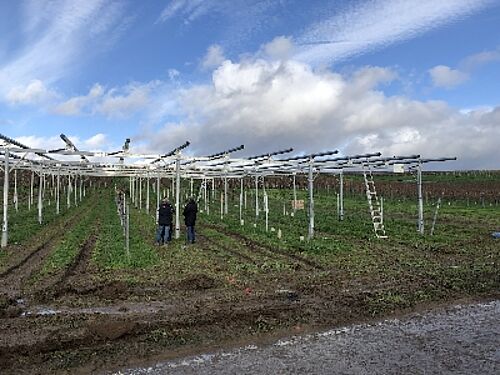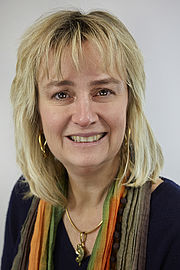Agrivoltaics in the Vineyard
Can solar panels help winegrowers to mitigate the effects of climate change? Or do they even have the potential to make viticulture more sustainable? Hochschule Geisenheim University addresses these questions in the “VitiVoltaic“ project.
In a unique research project at Hochschule Geisenheim University, solar panels are installed above a vineyard to generate electricity while grapes are grown underneath. This dual use of land is called agrivoltaics, or VitiVoltaics in viticulture (the name comes from the Latin term Vitis vinifera: common grape vine). In addition to improving land use efficiency and promoting renewable energy, a PV system can help winegrowers adapt to climate change as the industry is already suffering from adverse effects such as accelerated ripening processes, drought stress, reduced acidity levels or sunburn to name only a few. Climate change is real, and the risk of late frosts, heat waves, droughts and heavy rainfall is increasing. Solar panels that shade the grapes could help mitigate the negative effects by lowering the temperature underneath the panels, improving the water balance of the grapes and reducing the damage caused by heavy rainfall. In addition, the electricity generated could be used for frost protection or vineyard management. As an additional benefit, solar panels could reduce the level of humidity of the canopies underneath, making them less susceptible to pests and helping to reduce the use of pesticides.
But how exactly do solar panels affect the grape vines, the microclimate in the vineyard and, as a result, the yield and the quality of the grapes? Do they have the potential to reduce the use of pesticides? And how can we use the electricity generated to make viticulture more sustainable? These are just some of the questions we are exploring in our “VitiVoltaic” project.
Funding is provided by the European Regional Development Fund (APV-Weinbau4Real), EFRE-REACT (equipment) and the Hessian Ministry for the Environment, Climate Change, Agriculture and Consumer Protection (VitiVoltaic4Future).







